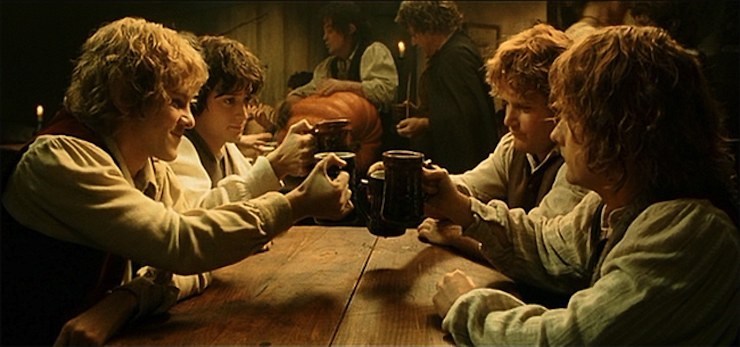We have recently been bombarded with troubling terms like “stay safe,” “stay home, stay safe,” “shelter in place,” and “uncertain times.” In the midst of all of the fear and propaganda, many of us have forgotten a foundational truth about life: it’s not safe. It never has been safe—but that shouldn’t keep us from living it.
During a disease outbreak there are 3 imperatives for maintaining a healthy community, despite the risk:
Pull Yourself Together Man!
C. S. Lewis likely says this more succinctly than anyone:
This is the first point to be made: and the first action to be taken is to pull ourselves together. If we are all going to be destroyed by an atomic bomb [or a virus], let that bomb when it comes find us doing sensible and human things—praying, working, teaching, reading, listening to music, bathing the children, playing tennis, chatting to our friends over a pint and a game of darts—not huddled together like frightened sheep and thinking about bombs. They may break our bodies [a microbe can do that] but they need not dominate our minds.
We must face our fear of death (for that is what it is) and not let that fear destroy the most wonderful things in our lives. Our situation is not unique, and if we are going to wait until it’s safe to live, then we never will. Like Dennis Prager says so shockingly:
“‘Until it’s safe’ means never.”
Quarantine the Sick, Not the Healthy
Life is risky enough, but if we really want to make it unsafe then we should quarantine the healthy. There is a good reason why society has rarely, if ever, quarantined the healthy. The tradeoff is never good. The toll on a society’s health is devastating:
- suicide
- domestic violence
- the UN estimates that 130 million starved to death in 2020 because of the lockdowns
- an increase in diseases like diphtheria, pertussis, and polio because people stopped bringing their children in for immunizations because they fear Covid more than these more deadly diseases
- death or neglect of the sick and elderly who can’t get everyday care from a shutdown health care system
- job-loss mortality is well studied (the death rate for an unemployed person is 63 percent higher than for someone with a job)
- the unknown effect on our children from shutting their schools
Yes, from antiquity we have known that it is devastating to isolate the healthy by shutting down society.
The solution? Take your chances with the virus. Quarantine the sick and those at risk, but not the healthy or those who choose to take the risk.
Don’t Undermine the Only Relatively Safe Place
The safest place in the world for any of us is in community, whether it’s a divine, family, or village community. We were made for community and that is why we thrive there. Babies that aren’t touched die. Individuals isolated from their tribe die. This goes all the way down: soil without community cannot produce life. A gut without a community of microbes cannot keep us healthy. The disastrous health effects of isolation are confirmed by many studies.
“A ship in the harbor is safe, but that is not what ships were built for.” – John Shedd
We cannot afford, then, to undermine our communities by isolating them. We must trust our time-honored wisdom. To meddle with our communities is the truly risky thing. If we really want to court epidemiological, social, and economic disaster then we should, for safety’s sake, shut ourselves off from the safest place in the world: community. Quarantine, masks, and social distancing cannot be allowed to interfere with a healthy community, especially if we’d like to keep it that way. We are now in the very process of seeing just how true this really is.
The Wrong Model: Isolation Doesn’t Mean Safe
Isolation causes disease, not the other way around. A sterile, isolated world is a sick world. We have the wrong model: we don’t need to be afraid of each other. We aren’t passing disease. We are actually passing critical genomic information for stronger and more resilient communities and immunities. The breaking research on our microbiome alone tells us this.
Isolate the sick and vulnerable, yes. But unless we are very ill or choose not to take the risk, then we must stop this isolating insanity. Life is not safe, but civilization only flourishes in thriving communities. Consequently, whether we are 8 or 80, we’d better live it in that place, risk or no.
Let’s gather courage against our fear of death and do just that!


Excellent thoughts, Brent King!
Thanks Cheri! Let’s hope, like one of those unsettling slogans admonishes, that our communities will truly “emerge stronger” through all of this—and hopefully a lot wiser too!